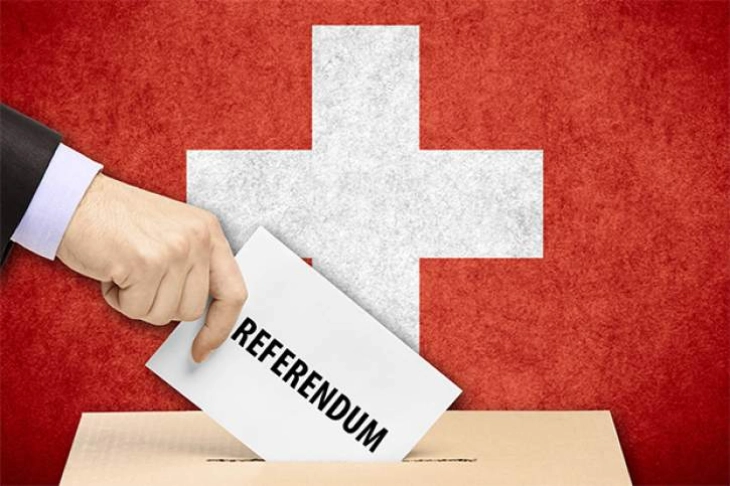Swiss vote for climate protection and higher taxes in referendum
- A majority of Swiss voters turned out in favour of a new climate protection law and higher corporate taxes, according to final results of a referendum on Sunday.
- Post By Magdalena Reed
- 08:28, 19 June, 2023

Geneva, 19 June 2023 (dpa/MIA) — A majority of Swiss voters turned out in favour of a new climate protection law and higher corporate taxes, according to final results of a referendum on Sunday.
The tallies showed that 59.1% said yes to the climate protection law and 78.5% were in favour of the tax law.
"As of today, our country is seriously on the way to phasing out fossil fuels, this gives planning and legal certainty," Greenpeace Switzerland said, welcoming the approval of the people.
The climate law aims to make Switzerland climate-neutral by 2050. To achieve this, climate-damaging emissions must be cut by 75% by 2040 compared to 1990. The consumption of fossil energies is to be reduced.
The Swiss government plans to promote the departure from oil and gas heating with financial incentives. Companies will also be supported to help them convert to climate-friendly technologies.
Over a period of 10 years, 3.2 billion Swiss francs ($3.6 billion) are available for this purpose.
Switzerland still imports about three-quarters of its energy. In the face of resistance from landscape conservationists, large parks with solar panels are being planned in the Alps. More wind turbines are also to be installed.
Parliament already passed the climate law, but the right-wing conservative Swiss People's Party (SVP) rejects it, arguing it would cause prices to explode. The SVP collected sufficient signatures to force the referendum vote.
Switzerland currently still imports about three quarters of its energy. Against the resistance of landscape conservationists, large parks with solar panels are being planned in the Alps.
In the case of corporate taxes, the issue is the implementation of a decision by the Organization for Economic Cooperation and Development (OECD) to require international companies with sales of at least €750 million to be taxed at a rate of at least 15%.
Tax rates in Swiss cantons are in part significantly lower and are therefore particularly attractive for multinational corporations. Basel and Zug, where large pharmaceutical and trading groups are based, would benefit most from higher tax revenues.
Business associations welcomed the move. There was "no better alternative" to the OECD minimum tax, said Swissmem, the Swiss tech industry association. In addition, the yes vote means legal certainty for the companies concerned.







